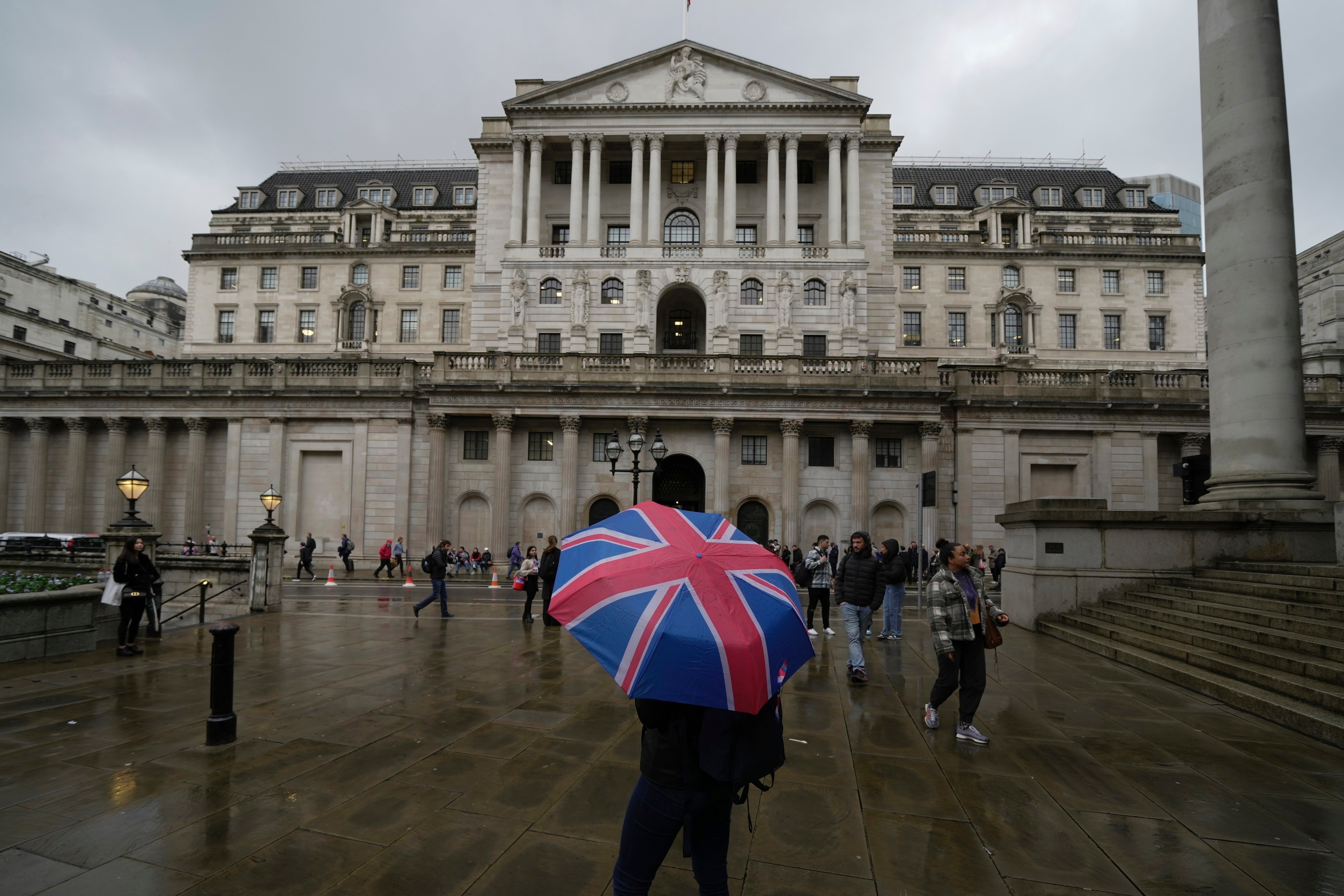Bank of England poised to slow pace of interest rate hikes
Britain’s central bank is expected to deliver its ninth straight interest rate hike

Britain's central bank is expected to deliver its ninth straight interest rate hike Thursday, though it will likely be smaller than last month's outsized increase as inflation shows signs of easing.
Most economists expect the Bank of England to raise its key interest rate by half a percentage point, taking it to 3.5%. That would put it in line with the U.S. Federal Reserve, which hiked its benchmark rate by the same amount Wednesday. Switzerland’s central bank followed suit a day later, and the European Central Bank also is expected to approve a similar increase Thursday.
The U.K. central bank voted last month to raise its key rate by three quarters of a point, to 3%, the biggest increase in three decades. It justified the aggressive move by saying it was needed to beat back stubbornly high inflation that's eroding living standards and could trigger an extended recession.
Central banks worldwide have been battling to keep inflation under control, but Bank of England policymakers face extra pressure to strike the right balance because Britain's economic outlook is worse than any other major economy.
The high cost of food and energy is eroding British households’ spending power while employers face pressure to boost wages to keep pace with inflation amid a nationwide wave of strikes by nurses, train drivers, postal workers, ambulance staff and others.
The Bank of England forecast last month that inflation would peak at around 11% in the last three months of the year, up from 10.1% in September. It said inflation should then start slowing next year, dropping below the bank's 2% target within two years.
There were early signs that price spikes were easing, though inflation is still stuck near a 40-year high. Annual consumer price inflation dipped to 10.7% in November from 11.1% the previous month, according to official data released Wednesday.
“Overall, inflation has passed its peak and will continue to fall from here. That will prompt a sigh of relief” at the Bank of England's headquarters, said Paul Dales, chief U.K. economist at Capital Economics.
But policymakers can't be complacent because Britain's economy is proving resilient and wage growth remains strong, he said in a research note.
“So interest rates are still going to be raised further, but the Bank will probably raise them at a slower rate” and they'll top out at a lower than expected level, Dales said.
Bookmark popover
Removed from bookmarks